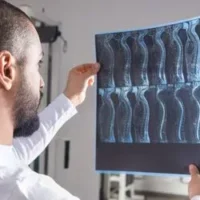How Does the Personal Injury Claims Process Work?

When you have been injured, you likely have many questions about what to do and what the process is like to file a personal injury claim. Read on for answers to some of the most commonly asked questions following an accidental injury.
What Should I Do First After an Accident?
Anytime you are involved in an accident, your first step should be to get checked out at a medical facility to check the extent of your injuries. Medical validation that you were seen will only help you in your personal injury case.
Why Should I Hire a Personal Injury Attorney?
Next, you should hire a personal injury attorney. Navigating the world of insurance companies and defendants is complicated, and any misstep can cost you the chance to win the money you deserve. A knowledgeable personal injury attorney can help you focus on your recovery while they fight for you. Most personal injury attorneys work on a contingency basis, meaning they do not collect payment from you unless they win you money.
What Is the Personal Injury Claims Process?
Your personal injury attorney will send a demand letter to the other party’s insurance company. This letter will detail any injuries you suffered, treatments you received, pain and suffering costs, and lost wages. If the insurance company declines your claim, your attorney will file a complaint.
Complaint
The complaint builds on the demand letter with any evidence your attorney feels substantiates your claim and includes facts concerning all involved parties, allowing the court to assign jurisdiction. Finally, the complaint explicitly states the amount your attorney wants to win you.
Discovery
Your attorney will then begin investigating to collect evidence pertaining to your case. This includes the following.
- Insurance claims
- Any bills associated with your injuries
- Photographs or videos
- Police reports
- Documentation of lost wages or associated leave from work
Deposition
The attorney compiles all of this information into what is known as a deposition involving all parties, typically starting with the plaintiff and defendant. This step must be handled expertly as it includes sworn evidence that impacts your case and can take months to a year, depending on how complex your case is and the court’s caseload.
Settlement
At this point, your case may move into the settlement page, which is reached when both parties agree on a compensation package. This can either be settled between the attorneys, or a mediator can be engaged to negotiate terms between the parties. If no settlement terms are agreed upon, the case moves on to trial.
Trial
At your case’s trial, a judge or jury will listen to both parties as they present their arguments. After attorneys have given their closing arguments, the judge or jury will reach a verdict. If they decide in your favor, the judge will name your compensation amount. If, however, they determine the defendant is not liable for your settlement, your case will be dismissed.
Meldon Law Is Here to Guide You
When you have been injured in an accident, the last thing you need to do is worry about obtaining the compensation you deserve. When you hire the expert team at Meldon Law, we are on your side from the very beginning so you can focus on recovering and getting your life back. Contact us today to find out more about how we walk you through the personal injury claims process — and fight for your rights the whole way.

